Northern Trust's Scott Murray: One Step Ahead
Scott Murray, CTO of Chicago-based Northern Trust, always keeps an eye on the future.
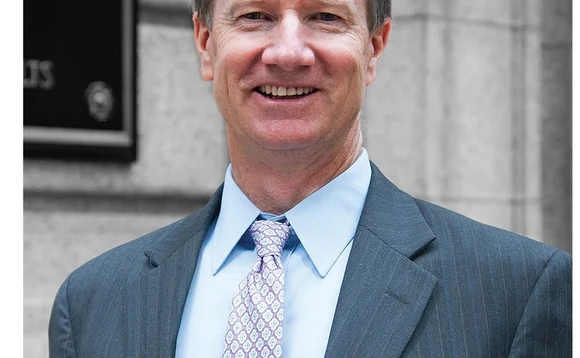
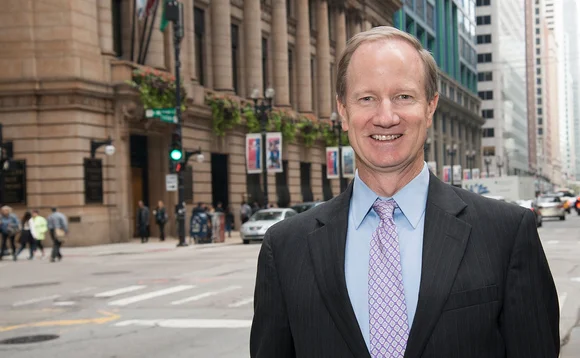
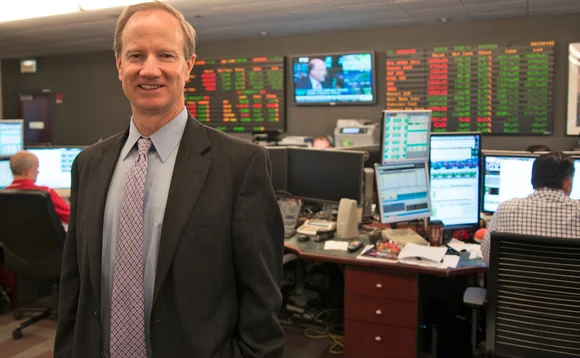
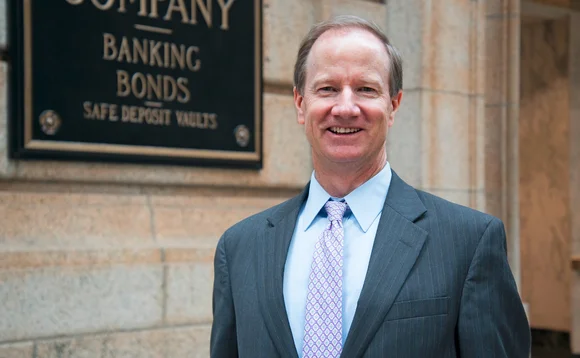
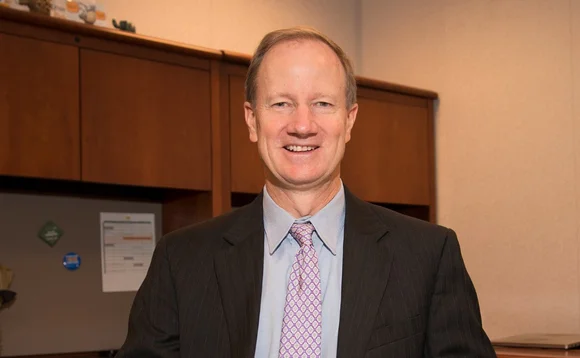
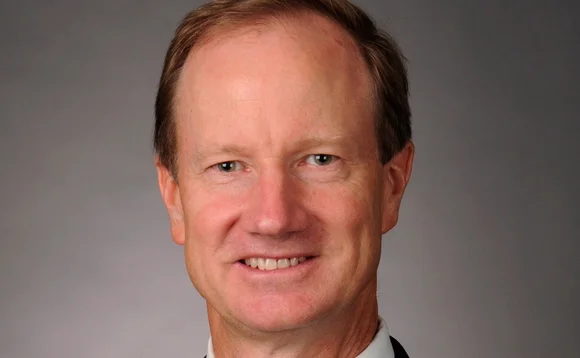
Scott Murray knows what his next step is. Every move he makes is well thought-out and planned. There are no leaps of faith, no moves made without the appropriate amount of vetting. Everything Murray does is calculated.
That type of behavior is to be expected from a C-level executive. Murray, who has served as the CTO of Chicago-based asset manager Northern Trust since July 2011, can’t afford to make rash decisions when he’s managing the technology of a firm that has $887 billion under management.
But middle age and increased responsibilities haven’t brought on this evaluative approach to life—Murray has been mindful to keep an eye on the future with every choice he has made for a long time.
That’s not to say he has mapped out his entire career path. He has simply given himself the necessary tools to take any route he wanted.
“I don’t know if I’ve really planned my career, but I’ve certainly thought through the next step and what I can do to broaden my skill sets,” Murray says.
“Technology was not viewed as a back-office function, or an expense center—it was viewed as it was going to be strategic to the success of companies in the financial services space.”
That’s how Murray approaches his role at Northern Trust. His favorite saying—“architecture first”—is a nod to the importance of setting the firm up for success, not just in the immediate future, but for years to come.
“It’s about building things the right way for the long haul,” Murray says. “You could get the same result from building a house in a quick manner or you can build it with a very strong foundation and it won’t show for multiple years. There is lots of focus on doing it the right way for the long haul.”
Planning for the Future
Murray is straightforward about the number of current and upcoming technology projects at Northern Trust: “Oh boy, there’s a whole bunch there,” he says.
Indeed there are. Murray, always thinking ahead, has plenty of enhancements and solutions planned for the firm. As someone who always seems to be thinking a step ahead, Murray wants to keep Northern Trust running on the best technology possible.
Take data as an example. It’s a broad topic, but one that is vitally important to every financial firm. There is no denying that collecting, analyzing and consuming data in the most efficient way possible is of the utmost importance to every bank, asset manager and hedge fund in the world.
Northern Trust is no different. Currently, the firm is in the midst of the first part of a project to build a next-generation data warehouse. Murray says the firm is planning to use a combination of big data and a data lake with Hadoop to develop database appliances for an enterprise data warehouse.
The firm’s core systems are also being brought into a standardized internal messaging format that is based on the Society for Worldwide Interbank Financial Telecommunication (Swift) ISO 20022 standard, according to Murray.
There are also security-based data projects in the works. Every day, 750 million system-logged events are entered into a big data application that then monitors and analyzes the information in an effort to protect client data.
Infrastructure logs are also being collected and analyzed for performance analytics.
“We’re able to tell whether our servers are starting to approach capacity or our employees’ desktops are running constrained,” Murray says. “And we’re able to target our investment to a place where there are assets that are running hot.”
Speed Kills
These projects employ the agile development method. With every new platform, solution or enhancement that is developed, Murray says Northern Trust is always looking at how it can be built and implemented faster. Part of this is done by looking outside the firm.
Murray says he takes multiple trips a year to Silicon Valley to meet with startups that can potentially help Northern with its client-solution needs. The firm has already invested in a startup that offers hyper-convergence infrastructure, which consolidates and integrates software even further than what would be found in a converged infrastructure.
“We’ve got a whole set of initiatives around how we develop software and integrate software faster around our DevOps, continuous integration space, service line and architecture,” Murray says. “It’s a continuation of applications with some of our reusable framework and the agile software capabilities.”
Stressing agility in development is important with the current industry landscape, according to Murray. From a technology perspective, things have changed more rapidly over the past four years than he says he’s seen in his entire career. The firm sometimes needs to be willing to look outside its four walls when it comes to technology, whether that’s in Silicon Valley or an industry not related to financial services at all, Murray says.
“It’s important that the staff has a Rolodex of their peers in the industry to learn from,” Murray says. “To get other industry intelligence is important.”
Foundation
For Murray, being conscious of what’s ahead has always been how he’s approached the decision-making process. He was born and raised in Ballwin, Missouri, a western suburb of St. Louis. The son of an advertising director and an accountant, it wasn’t until his senior year of high school that he got involved with computers.
Murray, who had always excelled at math, took two programming classes during his final year of high school. He enjoyed the work and the fact he could listen to his stereo while doing it. Unlike liberal arts subjects, which required him to really focus, Murray could crank up Journey, Boston and REO Speedwagon while he plugged away.
“This is a good thing; it’s up and coming” says Murray of his initial thoughts on programming. “Combine that with business and see where it goes.”
When it came to picking a college, Murray chose Purdue University, which offered a degree that was a combination of business and computer science, something that wasn’t available at most universities at the time.
“It felt like a good option,” Murray says. “If the tech didn’t click further in college, then I had the business to fall back on. If the tech clicked, then I could go into the tech side and follow that path. So it gave me an option.”
Testing the Waters
Three years later, thanks to a lot of hard work and credits earned in high school, Murray was able to graduate from Purdue a year early. Still only 20 years old, he chose to further broaden his foundation by going to the University of Chicago for a master’s degree in business administration with a focus on accounting and finance.
Always looking at the big picture, Murray believed he was too young to enter the workforce and wanted to supplement his technical training with more business experience before launching his career. The decision paid off, as after graduating, Murray landed a job with what was, at the time, one of the Big Eight accounting firms.
Working as a technology consultant gave Murray the chance to test the waters on different potential career paths. He spent time at a Chicago bank, a New York brokerage, a West Coast manufacturer, and the state government. The different clients he worked with served as windows into potential career paths he might want to pursue.
“I wanted to see a variety of industries and a variety of different workplaces to better understand what I wanted to pursue over the long haul,” Murray says.
Picking a Route
Eventually, traveling to different clients every week became too much, and Murray, who had met his eventual wife, Kathleen, was ready to settle down. After a brief stint working on the technology strategy of a manufacturing company, Murray, who was in his mid-20s at the time, decided it was time to pick a career and stick with it.
As is the case with all of his decisions, plenty of research was done. He explored his options in different industries, looking for the best possible fit.
Murray quickly discovered that the financial services sector is more dependent on technology than almost every other industry. It’s not just the amount of money spent on technology at banks and asset managers, it’s the fact IT is a core part of those firms.
“It was the importance of technology to the success of the business,” Murray says. “Technology was not viewed as a back-office function, or an expense center—it was viewed as it was going to be strategic to the success of companies in the financial services space.”
Consolidation is Key
Murray’s first job in financial services was in the asset management division of Kemper Financial Services, which was eventually acquired by Deutsche Bank after a series of mergers. He spent 16 years there, climbing the ladder and working several different roles on the technology side of the firm, particularly in the application development space where he built transfer-agency systems, a fund-accounting system and trading platforms for fixed income and equities.
But by 2002, he was tired of spending so much time traveling to different business sites and made a change, taking the CTO of capital markets role at Bank One. Murray helped lead the merger between Bank One and JPMorgan, which transpired two years later.
One of Murray’s main responsibilities was consolidating a couple of hundred business applications that were duplicated across the combined firm. As he worked with different teams to rationalize the different business applications and then execute them on a global basis, he learned an important lesson that would eventually lead him to his job at Northern Trust.
“The reinforcing power of getting to singular global operating platforms and systems provides a lot of benefit,” Murray says. “It is something that actually drew me to Northern. One of the things Northern Trust has been doing over the last 10-plus years has been focusing on a global, singular operating model for serving its clients.”
After seven years and various roles at JPMorgan, including global CIO for treasury services, Murray was ready for another change. Eager to work for a firm headquartered in Chicago, where he’d made his home, Northern Trust stood out due to its 126-year history based in the Windy City.
Naturally, Murray did his research on the firm before taking the role, and so, to his delight, did Northern. Two things stood out to Murray during the vetting process.
“I was impressed with the consistent culture that came through in every interview. You could tell everyone was on the same page,” Murray says. “As I got to know the people at Northern during the interview process and did my research, it was clear that the way they viewed technology was strategically imperative for the growth of the company.”
That mindset hasn’t changed, as more investments are scheduled to be injected into the technology division at Northern Trust. Murray says the firm’s 2016 IT spend is projected to increase. It’s another indication, according to Murray, of how the firm views technology as a strategic investment that will pay dividends for its clients and employees.
It’s also shows that the firm, just like Murray, is always looking one step ahead.
“The thing that strikes me as I’ve been through a lot of these different mergers and other company environments is that Northern does things for the long haul,” Murray says. “They’re always looking for the long position and the right thing to do for the long run.”
Scott Murray Fundamental Data
Name: Scott Murray
Birthplace: Ballwin, Missouri
Age: 57
Title: CTO of Northern Trust
Assets Under Management: $887 billion
Education: BS in business and computer science from Purdue University; MBA in accounting and finance from University of Chicago
Hobbies: Golf, Chicago Bears, exercising and traveling
Fun Fact: Murray serves on the board of directors for the Pritzker Military Museum and Library in Chicago.
Only users who have a paid subscription or are part of a corporate subscription are able to print or copy content.
To access these options, along with all other subscription benefits, please contact info@waterstechnology.com or view our subscription options here: http://subscriptions.waterstechnology.com/subscribe
You are currently unable to print this content. Please contact info@waterstechnology.com to find out more.
You are currently unable to copy this content. Please contact info@waterstechnology.com to find out more.
Copyright Infopro Digital Limited. All rights reserved.
As outlined in our terms and conditions, https://www.infopro-digital.com/terms-and-conditions/subscriptions/ (point 2.4), printing is limited to a single copy.
If you would like to purchase additional rights please email info@waterstechnology.com
Copyright Infopro Digital Limited. All rights reserved.
You may share this content using our article tools. As outlined in our terms and conditions, https://www.infopro-digital.com/terms-and-conditions/subscriptions/ (clause 2.4), an Authorised User may only make one copy of the materials for their own personal use. You must also comply with the restrictions in clause 2.5.
If you would like to purchase additional rights please email info@waterstechnology.com
More on Emerging Technologies
Waters Wavelength Ep. 313: FIS Global’s Jon Hodges
This week, Jon Hodges, head of trading and asset services for Apac at FIS Global, joins the podcast to talk about how firms in Asia-Pacific approach AI and data.
Project Condor: Inside the data exercise expanding Man Group’s universe
Voice of the CTO: The investment management firm is strategically restructuring its data and trading architecture.
BNP Paribas explores GenAI for securities services business
The bank recently released a new web app for its client portal to modernize its tech stack.
Bank of America and AI, exchanges feud with researchers, a potential EU tax on US tech, and more
The Waters Cooler: Broadridge settles repos in real time, Market Structure Partners strikes back at European exchanges, and a scandal unfolds in Boston in this week’s news roundup.
Bloomberg rolls out GenAI-powered Document Insights
The data giant’s newest generative AI tool allows analysts to query documents using a natural-language interface.
Tape bids, algorithmic trading, tariffs fallout and more
The Waters Cooler: Bloomberg integrates events data, SimCorp and TSImagine help out asset managers, and Big xyt makes good on its consolidated tape bid in this week’s news roundup.
DeepSeek success spurs banks to consider do-it-yourself AI
Chinese LLM resets price tag for in-house systems—and could also nudge banks towards open-source models.
Standard Chartered goes from spectator to player in digital asset game
The bank’s digital assets custody offering is underpinned by an open API and modular infrastructure, allowing it to potentially add a secondary back-end system provider.








